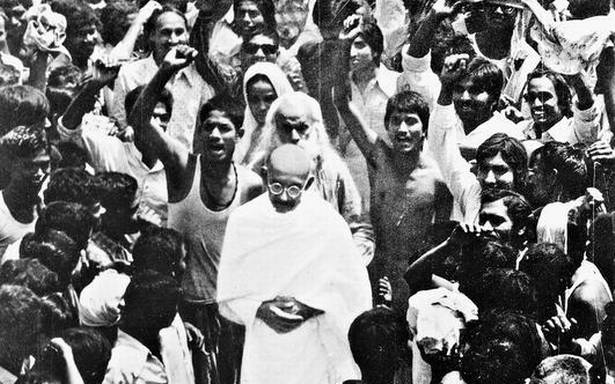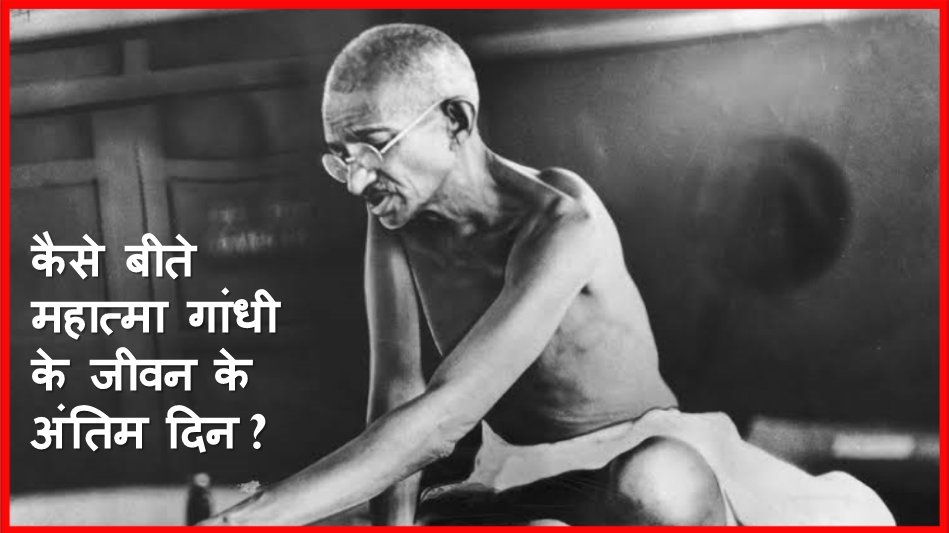As the iconic Champaran movement completes its 100 years it is time we invoke the Gandhian spirit of social transformation and collective mobilization. In the contemporary age plagued with severe challenges his ideas are relevant than ever before, reminding us over and over again of the need for social change through collective action.
Bharat Dogra is a freelance journalist who has been involved with several social movements and initiatives. Details of his work can be seen at www.bharatdogra.in
At a time when several events are being held to celebrate 100 years of the famous Champaran Satyagraha, it would be a good idea to consider these and related struggles in the context of the times and needs of contemporary society. When Gandhiji was first approached by a Champaran farmer to come to his area he was not at all aware of the region let alone its problems. He went there much in the spirit in which several human rights activists go to those areas from where they have received news of human rights violations.

However there is one notable difference. While these days the commitment in terms of visiting a place, meeting its people and preparing a report is generally just for a few days, Gandhiji was willing, once he became aware of the seriousness of the problems, to spend several months at Champaran and he was also quite willing to go to jail if this was required in the course of his work.
Secondly, Gandhiji may have come to this region for the first time and he may not have been familiar with the local language, yet in a short time he was able to build a very good rapport with a large number of diverse people who were only too willing to share various duties and tasks assigned to them as volunteers of various kinds. By the time Gandhi had to leave Champaran he had acquired several lifelong friends who would be playing an important role in the freedom struggle as well as in post-Independence India.
Thirdly, Gandhiji worked with a very democratic spirit. All the work was done in a very democratic and transparent way without hiding anything even from the opponents. This helped to clear several doubts and suspicions about his motives. This also allowed for the acceptance of some of his pleas by the colonial state even by several officials who initially saw no problem within the exploitative system. These are important lessons for even any present day efforts to fight injustice with broadbased mobilization in a sustained away. The most important principle on which this and other struggles initiated by Gandhiji were based is non-violence. The other important aspects of these struggles are their transparency, broad-based structural concerns and sustained efforts performed non-violently. All this is of great and increasing importance in preset times where any comprehensive effort to create a better and safer world have to deal with very complex issues. There is no single or visible enemy who can be attacked to pave the way for a better future. Instead the complex task is to link up many issues of justice, peace and environment protection in such a way that these objectives can be pursued together by a very large number of people. This involves mobilization of common people against strong vested interests and this also demands the empowerment of people themselves at various levels so that their own lives and beliefs are in tune with the requirements of a world based on justice, peace and environmental protection. Clearly such efforts cannot be violent and se cretive: these necessarily have to be nonviolent and transparent. And this is where the present-day world despite all its complex and new issues can still learn much from various Gandhian struggles like the one at Champaran. It is by now very well realized by most thoughtful, concerned and rational people in the world that our world is confronted by nothing less than a survival crisis because of many-sided and very serious environmental problems. This challenge can be met only in a world based on peace and justice.
Hence the need for broad-based and very sincere acceptance of the basic principles of peace, justice and environment protection is today greater than ever before. In fact, now it is a question of sheer survival. In this wider context the ideas of Gandhi provide a meeting ground of basic requirements of peace, justice and environment protection. When efforts are made to assimilate these basic precepts to create a program of action, some of the ideas, efforts and struggles of Gandhiji would be very helpful. This is the enduring contribution of Gandhiji to help an increasingly troubled world.
This article is published in The New Leam, JUNE 2017 Issue( Vol .3 No.25) and available in print version. To buy contact us or write at thenewleam@gmail.com
The New Leam has no external source of funding. For retaining its uniqueness, its high quality, its distinctive philosophy we wish to reduce the degree of dependence on corporate funding. We believe that if individuals like you come forward and SUPPORT THIS ENDEAVOR can make the magazine self-reliant in a very innovative way.











